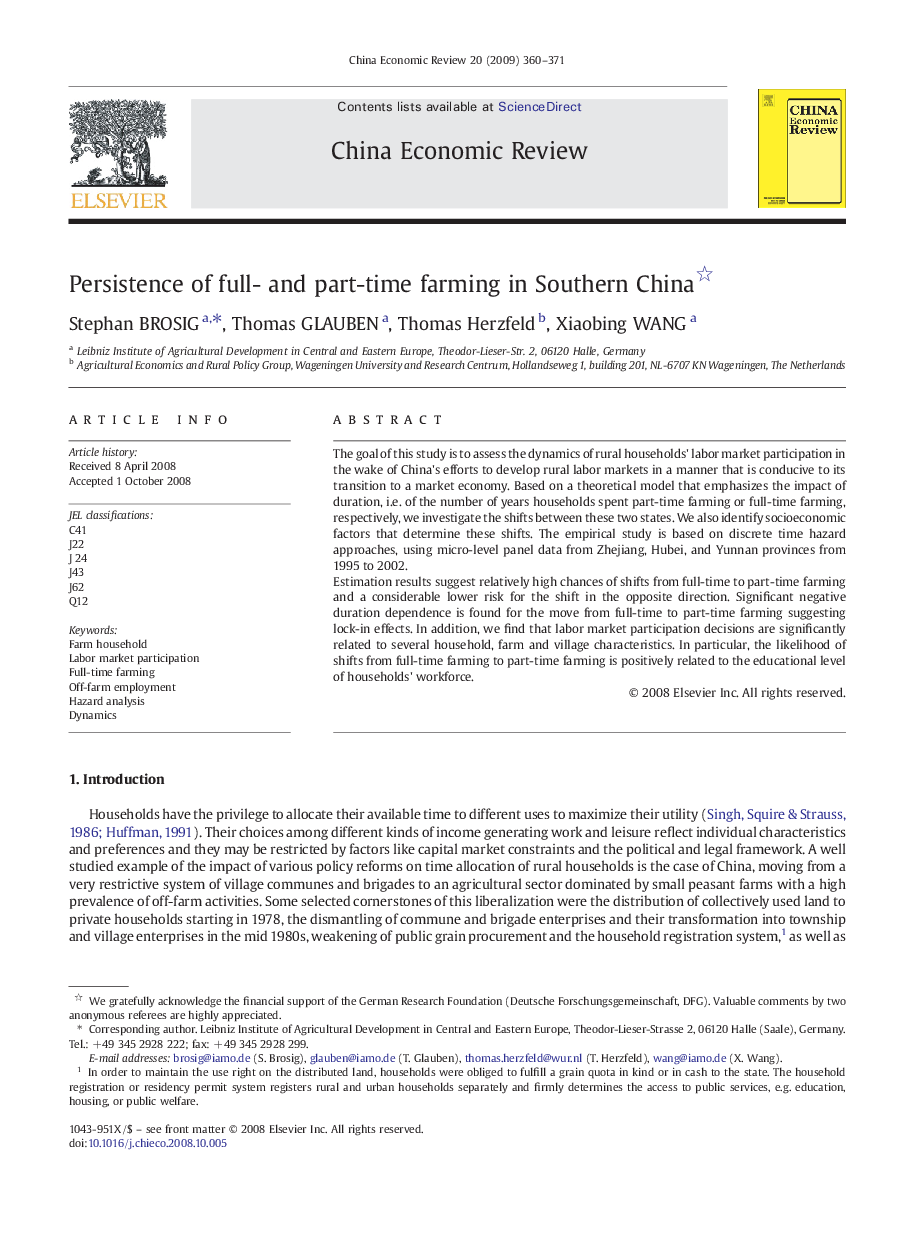| Article ID | Journal | Published Year | Pages | File Type |
|---|---|---|---|---|
| 5047998 | China Economic Review | 2009 | 12 Pages |
The goal of this study is to assess the dynamics of rural households' labor market participation in the wake of China's efforts to develop rural labor markets in a manner that is conducive to its transition to a market economy. Based on a theoretical model that emphasizes the impact of duration, i.e. of the number of years households spent part-time farming or full-time farming, respectively, we investigate the shifts between these two states. We also identify socioeconomic factors that determine these shifts. The empirical study is based on discrete time hazard approaches, using micro-level panel data from Zhejiang, Hubei, and Yunnan provinces from 1995 to 2002.Estimation results suggest relatively high chances of shifts from full-time to part-time farming and a considerable lower risk for the shift in the opposite direction. Significant negative duration dependence is found for the move from full-time to part-time farming suggesting lock-in effects. In addition, we find that labor market participation decisions are significantly related to several household, farm and village characteristics. In particular, the likelihood of shifts from full-time farming to part-time farming is positively related to the educational level of households' workforce.
